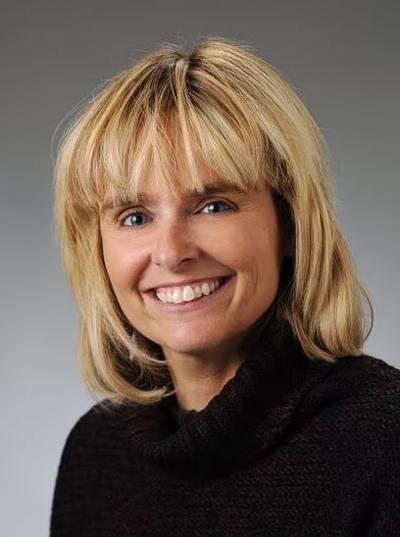One week out of every month, between 40 and 70 women from Montana, Wyoming, Idaho, and North Dakota travel to Billings with a shared mission: to undertake some step of the in-vitro fertilization process at the state’s only fertility clinic. It's also the only clinic between Fargo and Spokane, or north of Salt Lake City and Denver.
The Billings Clinic Fertility Specialists now see about 500 patients per year, up from 58 patients in 2011, the year the clinic opened. And it all still happens in a one-week window each month.
“We batch all our IVF cycles so we all land in Billings during a specific week,” said Dr. Stacy Shomento, the medical director of Montana's sole IVF program. Shomento, along with another reproductive doctor from North Dakota and embryologists, travels to Billings each month for the cycle.
“IVF programs are concentrated in big cities,” Dr. Shomento said. “It's very special that we're able to do this in a rural location and that means there's travel involved for a lot of people.”
People are also reading…

Shomento
In the weeks leading up, patients take hormones to stimulate egg production. Patients on the western half of the state receive ultrasounds in Bozeman, patients on the eastern half — as well as from Cody and Powell, Wyoming, and Williston, North Dakota — receive ultrasounds in Billings. But every patient must come to Billings at least twice: to have eggs “retrieved,” or removed, and, once again, to have embryos “transferred,” or put into the uterus.
The clinic transferred 44 embryos in a single week this past February.
Part of the process is testing for infertility on both the male and female side. About 40% of couples have infertility on the male side, another 40% have it on the female side, and about 20% have it on both sides, according to Dr. Shomento.
In 2021, the most recent year with available data, 412 Montanan women used assistive reproductive technology, leading to 179 births, according to data from the Centers for Disease Control (CDC). This accounted for 1.6% of Montana’s births that year, which is still below the national rate of 2.3%.
Despite growing steadily over the years, Montanan women use IVF at just over half the national rate, according to data from the CDC. This is because there isn’t much insurance coverage for IVF in Montana and a cycle at Billings Clinic costs about $15,000 to $20,000.
Other states, such as Arkansas and Colorado, require insurance to pay for IVF for couples struggling with infertility.
“The vast majority of patients are having to pay for services completely out of pocket,” Dr. Shomento said. “It’s a great financial strain for people.”
Just last year, the legislature passed a bill requiring insurance companies to pay for fertility assistance for cancer patients, joining 16 other states which require some kind of insurance coverage for medically-induced infertility.
“Every single person probably knows somebody suffering from infertility or sub-fertility, it’s just not as talked about,” Dr. Shomento said. “A cancer patient tells all their friends and the insurance company gets behind them. IVF is costly, time intensive, requires lots of travel, and people go through it by themselves.”
Alabama and Montana
Meanwhile, a decision by the Alabama Supreme Court to treat frozen embryos as children has led to battles over whether to protect IVF access at the federal level, with politicians vying for office weighing in on whether they support protections of the procedure.
Incumbents Sen. Jon Tester and Rep. Ryan Zinke both said they support IVF, as does Senate hopeful Tim Sheehy and Monica Tranel, a Democrat running for Zinke's seat. But what “support” means depends on the candidate.
Tester came out in support of the Access to Family Building Act, which would establish a legal right to access IVF. He also supports the Veteran Families Health Services Act of 2023, which would expand fertility treatments available to veterans under health care, including IVF for veterans who cannot conceive without assistance.
Both bill sponsors tried to pass the bills through unanimous consent and both bills were blocked by Senate Republicans.
In response to a question about whether Sen. Steve Daines supports federal protection of IVF, a spokesperson said that he “fully supports IVF and no one is discussing a ban on IVF.”
In a post on X, Sheehy wrote that he “will fight against efforts to restrict (IVF).”
In response to a question about whether Sheehy would support protecting it at the federal level, a spokesperson said that “No one is talking about banning it. Of course he supports IVF.”
Tranel was unambiguous about her support for federal protections.
"In Congress I will fight to protect Montanans' freedoms, including access to IVF," she said.
Meanwhile, a spokesperson for Zinke said that his staff is reviewing the several bills on the issue in the House and are looking to see which will advance with the most bipartisan support.
Rep. Matt Rosendale, who has announced that he will not seek re-election, was the only federal representative who did not voice support for IVF.
“When the Supreme Court decided Dobbs v. Jackson there was a clear mandate to states that they are able to set their own rules pertaining to the life of an unborn child,” he said.











